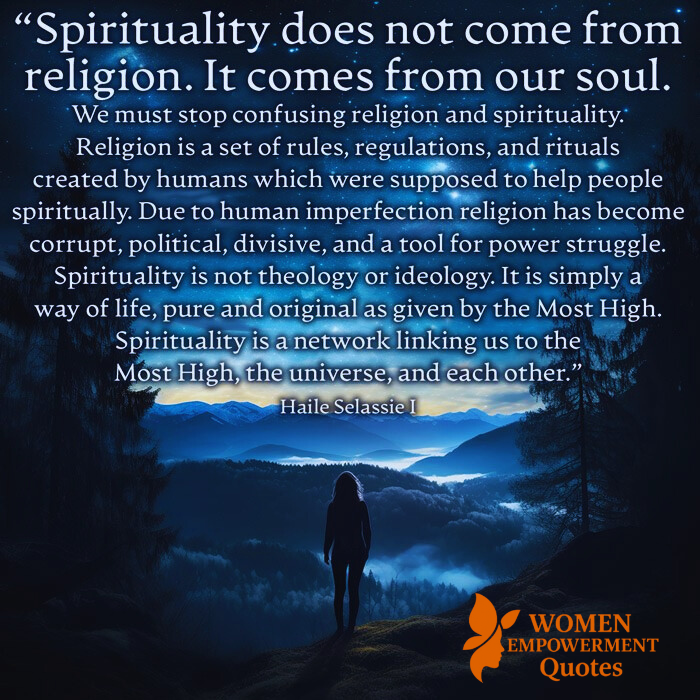
The Heart of Spirituality: A Journey Within
True spirituality isn’t confined within the walls of religion—it flows from the soul. It is the quiet force that stirs within us, connecting us to the divine in ways that go far beyond ritual, dogma, or tradition. As Haile Selassie I once said, we must learn to distinguish spirituality from religion—for while the two can intersect, they are not the same.
Religion is a human construct, shaped by culture, history, and at times, fallibility. While originally intended as a guide toward the sacred, religion has often been entangled in politics, hierarchy, and control. Its purpose, once rooted in communion with the divine, has sometimes shifted toward division and dominance.
And yet, spirituality remains pure.
It is a personal journey—a sacred unfolding of the heart. It is found not in stained glass or sacred texts alone, but in moments of stillness, acts of kindness, and a deep, unshakable connection to something greater than ourselves. It’s a path of authenticity, inviting us to live in alignment with truth, love, and universal purpose.
Walking the spiritual path means peeling back layers of societal expectations, letting go of ego, and discovering a deeper awareness of who we truly are. It means connecting with the Creator directly—without fear, without intermediaries. It is in this space that we discover the vast wisdom and love that exist within and around us.
Spirituality calls us to recognize our oneness with all living beings. It fosters compassion, empathy, and unity. It reminds us that we are threads woven into the same cosmic tapestry, each of us reflecting the light of the divine in unique and beautiful ways.
This inner journey is not about conforming to a set of rules—it’s about transformation. We are invited to shed the illusions that cloud our perception and awaken to a life of deeper meaning and radiant truth.
Haile Selassie I: A Voice of Spiritual Integrity
To understand the depth of Haile Selassie I’s words, we must glimpse the life of the man behind them. Born Tafari Makonnen, he became Emperor of Ethiopia in 1930, choosing the name Haile Selassie—“Power of the Trinity.” More than a political leader, he was revered as a spiritual light by millions across the globe.
His reign was marked by a tireless pursuit of justice, unity, and dignity for all. He championed human rights, fought against oppression, and helped shape the foundation of the United Nations and the Universal Declaration of Human Rights. His messages—rooted in the wisdom of ancient Ethiopian Christianity and African heritage—transcended politics, resonating with seekers of truth across all boundaries.
To the Rastafarian movement, Haile Selassie I was more than a monarch—he embodied the divine presence on Earth. His spiritual influence helped awaken a generation to a deeper sense of identity, purpose, and connection.
Even in his later years, amidst adversity, he remained a steadfast example of humility, peace, and inner strength. His life became a living testimony to the essence of spirituality: not bound by systems, but anchored in the eternal.
Timeless Words to Reflect On:
-
“The kingdom of God is within you.” – Jesus Christ
-
“Your sacred space is where you can find yourself over and over again.” – Joseph Campbell
-
“Spirituality is meant to take us beyond our tribal identity into a domain of awareness that is more universal.” – Deepak Chopra
-
“The soul is placed in the body like a rough diamond, and must be polished.” – Daniel Defoe
-
“Spirituality is recognizing and celebrating that we are all inextricably connected… grounded in love and compassion.” – Brené Brown
Final Reflection
We are not here merely to follow tradition—we are here to awaken. Spirituality invites us into a life of purpose and presence. It leads us beyond labels, beyond borders, into the truth of our being. Let us walk this path with open hearts, remembering that the divine is not far away—it is already within us, calling us home.